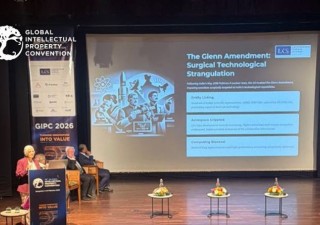The Protection of Traditional Knowledge Bill, 2022
30 April 2022

India is a goldmine of traditional knowledge which, put in simple words, is ancient wisdom handed down from generation to generation, and organically imbued in one’s daily life.
Every time we sit cross-legged while eating for better digestion, suck on mulethi (liquorice) or misri (rock candy) to prevent a cough, take a mouthful of ajwain (carom seeds) to prevent acidity or apply haldi lep (turmeric paste) on a physical wound, we are, in fact, using the traditional knowledge of India to our benefit. This knowledge stems from centuries of experience and wisdom, and is wide enough to include customs, traditions or even certain methods (jugaad, or makeshifting, or a hack, in common parlance) to make life or certain processes easier and more efficient. However, what might be a domestic nuskha (formula) for us, might be the source of commercial exploitation for someone else.
It would not be wrong to say that brilliant minds, if channelized properly, can potentially combine advanced technology along with innovation to scale India’s traditional knowledge to greater heights, so much so that it transcends domestic borders. But the question is what if it is done at the cost of rightful custodians of the traditional knowledge, which includes amongst others, indigenous communities, rural tribes, etc.?
These custodians may not even be aware of their rights. For example, we cannot expect a community like the Birhor tribes of Jharkhand to know that their traditional knowledge on plants is an intangible asset which may be exploited for commercial purpose. They may not even know that their know-how, which may be the source of their livelihood and identity, is entitled to any protection. It is completely fair to say that traditional knowledge is easily susceptible to misappropriation.
The fact that traditional knowledge is usually passed orally, without a definitive blueprint of legal ownership, rights or obligation, encourages the likes of researchers, scientists, companies, etc., to apply their own technology to it and commercialize it without the custodians’ consent. As an example, recently a German company made claims regarding “discovery” of tableware (bowls, plates, etc.) made out of leaves, when in fact, eating out of bowls made of leaves is a centuries-old tradition in India, with roots in the oldest treatise on Ayurveda by Acharya Charaka. The company eventually died its own death, but truly risked the exploitation of our traditional knowledge.
Paying due heed to the cause of in situ preservation of India’s traditional knowledge, Shashi Tharoor, a legislative leader and Member of Parliament, Lok Sabha, presented The Protection of Traditional Knowledge Bill, 2022 (Traditional Knowledge Bill) in the Lok Sabha on April 1, 2022. In his words, the bill seeks to “recognise the rights of those who possess and generate Traditional Knowledge, create a National Authority to support them and act against misappropriation by others”.
The bill gives not only gives the concept of traditional knowledge a definitive meaning, it also identifies as to with whom the ownership of such knowledge shall lie, along with the rights such ownership entails.
It recognizes the complete and absolute right of the Union of India over the traditional knowledge that exists within its national territory. That is to say, for all traditional knowledge practiced solely within a state or union territory, the appropriate government shall be deemed as its owner. However, if a particular traditional knowledge is practiced in more than one state or union territory, then the respective governments shall be deemed to have joint ownership along with equal and undivided claims and interest.
Moreover, the bill also recognizes contribution of specific communities in the development of traditional knowledge by giving them certain rights, including the right to self-determination.
The bill provides that to be recognized as custodian of traditional knowledge, the respective holder(s)/communities are required to register a knowledge society, defined as a group of people or family, whether indigenous, tribal or otherwise, residing within the boundaries of the national territory, who may be identified as a separate group from other groups or other members of the society by reason of their exclusive association with one or more forms of traditional knowledge] as per applicable laws. Consequent to recognition as custodian, the knowledge society shall be deemed to have a non-exclusive perpetual license for commercial use and non-commercial use of the traditional knowledge, and all the members of the knowledge society shall enjoy the rights collectively.
The bill is a welcome move towards consolidating the rich heritage of India in terms of traditional knowledge and displacing any thoughts about exclusive ownership of the same. It would be interesting to see how the same is perceived in the future and if a consensus is reached sooner or later.








